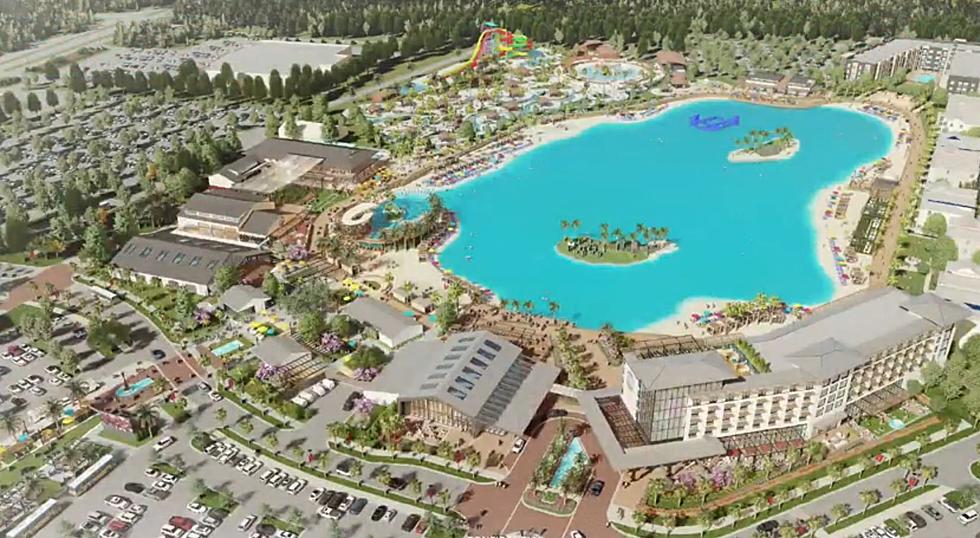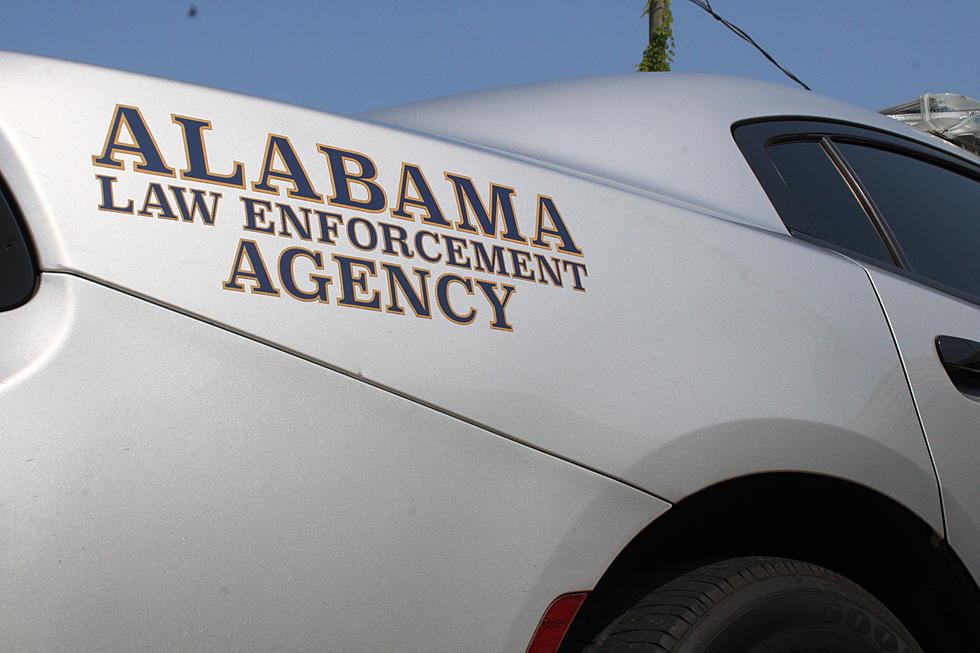
Northport OKs Partnership on Massive $350 Million “University Beach” Resort
Leaders in Northport have voted to partner with Texas developers to build a sprawling, almost 80-acre lagoon resort far from the 11-acre "neighborhood" water park once pitched to residents.
It's hard to exaggerate how different the resort presented Monday night is from early talks about the water park, which was to be a small affair off McFarland Boulevard and Harper Road near the existing Zaxby's, Big Lots and Tractor Supply store.
The council and more than a hundred citizens heard about this new lagoon from developers Kent Donahue and John Hughes of University Beach, LLC - a single-asset entity formed last year exclusively for this development.
Donahue and Hughes propose combining the original 11 acres with another 60-plus acres they're prepared to purchase to create a $350 million lagoon resort across three phases of construction and 77 total acres of land.
They pitched the water park as it had been previously visualized, with a lazy river and a slide tower, but their plans also included a standalone 12-acre beach lagoon - eight football fields of water, Hughes said - that could be complemented by a waterfall feature, cliff-jumping, a floating obstacle course, a concert venue, pickleball, paddleboarding and kayaking, rental islands, outdoor light shows and more.
"You really will get the feeling that you're being transported to a Caribbean island somewhere," Hughes said.
A fully realized University Beach would also include around 64 single-family residences with a starting price point of $800,000 and higher prices for "beach"-front properties, two separate multi-story hotels and a slew of new-to-market boardwalk-style restaurant and retail options.
"This will be not your normal water park, this will be a resort-style atmosphere," Hughes said.
Hughes suggested the project could draw 440,000 annual visitors and the beach club concept alone could create more than 250 full- and part-time jobs.

To build all this, Kent and Donahue sought $60 million in incentives from the city through a public-private partnership made legal by Amendment 772 of the Alabama constitution.
First of all, the city will donate the 11 acres it paid more than $2 million to purchase to the developers.
They will also reimburse the developers up to $20 million for infrastructure improvements they install, like new roads and pipes on a pay-as-you-go basis. The balance of the incentives will come from rebates on sales and lodging tax generated inside University Beach - which Hogg referred to as "profit-sharing."
The partnership passed by a 4-1 vote Monday, but more on that later.
Whether the third-of-a-billion-dollar development will be transformational or disastrous for the city is a matter of great controversy, but the Monday meeting was once again plagued by the dysfunctional way the city council chooses to do business.
Council President Hogg was combative with constituents, who showed up in droves and filled the council chambers, an entire overflow room and out into the lobby area of City Hall, mostly to oppose the development. Those constituents were often combative and disruptive themselves.
When the public comment about this matter finally began more than 90 minutes after the meeting began, opponents of the project were first limited to three minutes at the lectern, then only one minute as the night dragged on.
Still, speaker after speaker voiced their concerns, including former Northport councilman Bart Harper, who polled the audience about their feelings on University Beach and found near-unanimous opposition with a smattering of hands raised in favor.
Harper proposed letting this issue go before voters in 2025 before the city enters into a 30-year partnership with developers who have a questionable track record.
"This ain't a waterpark. Don't take my word for it, what did Mr. Donahue call it? He called it an upscale destination resort hotel complex. That ain't a waterpark," said District 5 constituent Jack Roberts. "This is nothing less than political bait-and-switch. This project is far larger, far larger than we were led to believe. It's going to be far busier, far louder and far more intrusive into its surrounding environments."
These meetings are also made more tense when Hogg imposes a made-up rule where he only allows a single citizen to talk about any given concern such as traffic or the effect of a development on property values. After one speaker expressed a concern, no one else was allowed to talk about it again during the public hearing.
It was hard not to contrast that rule against Hogg's enthusiast support of points in favor of the development - in fact, on at least three occasions, Hogg asked a speaker to "say that again" and repeat a "positive" aspect of their pitch he found particularly noteworthy.
Hogg also moved to pass the $60 million incentive on Monday night - during the same meeting where the public was learning details of the huge expansion of project scope for the first time.
Under city code, this kind of proposal is first discussed at a public hearing and then voted on at least two weeks later at the next regular city council meeting.
Pitching it as a matter of respecting the precious time of all parties involved, Hogg proposed suspending normal rules and granting the $60 million incentive and entering the partnership on the same day the public learned the full details of the proposed University Beach development.
The council voted unanimously to go ahead and consider the resolution, which passed by a 4-1 vote. The lone opposition came from Councilwoman Jamie Dykes.
Councilors Christie Bobo, Karl Wiggins, Woodrow Washington and President Hogg all voted in favor of entering the partnership despite the opposition expressed Monday night, making the city an official partner in the $350 million University Beach.
Other parts of the agreement passed Monday, too - the same four council members voted in favor of annexing 54 acres of land off Harper Road and McFarland Boulevard into the city for the project, and they also passed an ordinance to officially transfer the 11 acres originally purchased for the water park to University Beach, LLC.
It is worth noting, too, that the partnership includes a claw-back clause that will allow the city to take back the 11 acres it donated to the developers Monday night if Phase 1 of the complex - the water park and five dozen townhomes - are not completed within five years.
For more as it develops, stay connected to the Tuscaloosa Thread.
Top Stories from the Tuscaloosa Thread (2/12 - 2/19)
Gallery Credit: (Stephen Dethrage | Tuscaloosa Thread)
More From Tuscaloosa Thread









